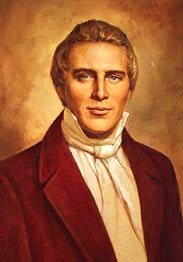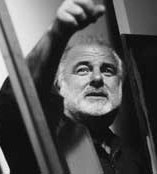 When I was growing up, my mom taught me there were three things not to talk about in public: religion, sex and politics. Don’t worry, this post won’t be about sex! But Republican Mitt Romney’s candidacy is igniting conversations about religion and politics all over the country, and that conversation is either spilling over into our pop culture–or our pop culture is driving it.
When I was growing up, my mom taught me there were three things not to talk about in public: religion, sex and politics. Don’t worry, this post won’t be about sex! But Republican Mitt Romney’s candidacy is igniting conversations about religion and politics all over the country, and that conversation is either spilling over into our pop culture–or our pop culture is driving it.
The latest example is a new documentary being filmed and produced about the history (as well as the challenges) of the first Mormon candidate who ran for president of the United States. If you believe the producers of “A Mormon President,” there are sub-currents of anti-Mormon feelings in the U.S. that need to be uncovered, and their expose of Joseph Smith’s 1844 presidential run is the tool that will accomplish the task.
The documentary’s producer, Adam Christing, states that “those who
want to understand Romney’s challenge today must first understand Joseph Smith.” I don’t think I could disagree more.
Joseph Smith was the founder of the religion, claiming to have received a vision from God to add to the Bible and change traditional Christian theology. He preached that Jesus came to America after his visit to Israel, but that the gospels of those events had been lost and buried. To his followers, Smith was a courageous prophet who stood against tradition, was persecuted for speaking the truth, and murdered when he intended to run for President.
To his detractors, Smith was a con artist and sleazy teller of tall tales, whose failing movement was forced from Missouri and Illinois and would have died but for an ambitious Brigham Young and the journey to Utah. Smith was beloved by his followers and loathed by his detractors. The facts of history has not been kind to him.
I can see Christing’s point that “Joseph Smith is one of the most captivating religious figures in U.S. history.” But I find him captivating because he got away with a story that in many ways has not held up to scrutiny, especially the fallacies in his “revelation” from God. Christing says “there is evidence that a political conspiracy was hatched to murder him shortly after he announced his run for president.” But back then there wasn’t much discernable difference between a conspiracy, a gang, or a mob wanting to run undesirable elements out of town.
Mitt Romney is different. He didn’t found a religion. He claims to be a practicer (not a preacher) of it. He came in late to lead the rescue effort at the scandal-plagued Salt Lake City Winter Olympics and was elected governor as a republican in the primarily democratic state of Massachusetts. He’s made a ton of money, both as a creator (and eliminator) of jobs. He’s been successful as a mainstream businessman and politician.
Few people “hate” him. They hate Mormon history. Or, they hate that they lost their jobs when he downsized them. And his run for the presidency is not challenged by people’s naiveté about a young start-up radical religion, but rather it is impeded by an evangelically-trained Christian culture. The pastors and organizations that bought “The Purpose-Driven Life” saw “The Passion of the Christ” and helped to elect George W. Bush are the same ones who have trained their congregations to view the Mormon posture that it is a “Christian denomination” as false.
I think “A Mormon President” will be interesting to history buffs, given its access to sites such as Haun’s Mill in Missouri (where 17 Mormons were massacred in 1838), Joseph Smith’s gravesite, and the jail cell in Carthage, Illinois where he was murdered. But I think the relevancy to Romney’s run is overplayed, and will be until someone documents the theological (not just circumstantial) issues in play. Our world of pop culture may not be as keenly aware of such things, but then again, it didn’t predict the success of Gibson’s “Passion” or Bush’s election and re-election.
As a student of history and faith-based issues, I’ll want to see the Christing’s documentary when it is out in the fall, but I doubt it’ll effect my vote on Romney. I suspect I’m not alone in that opinion.


